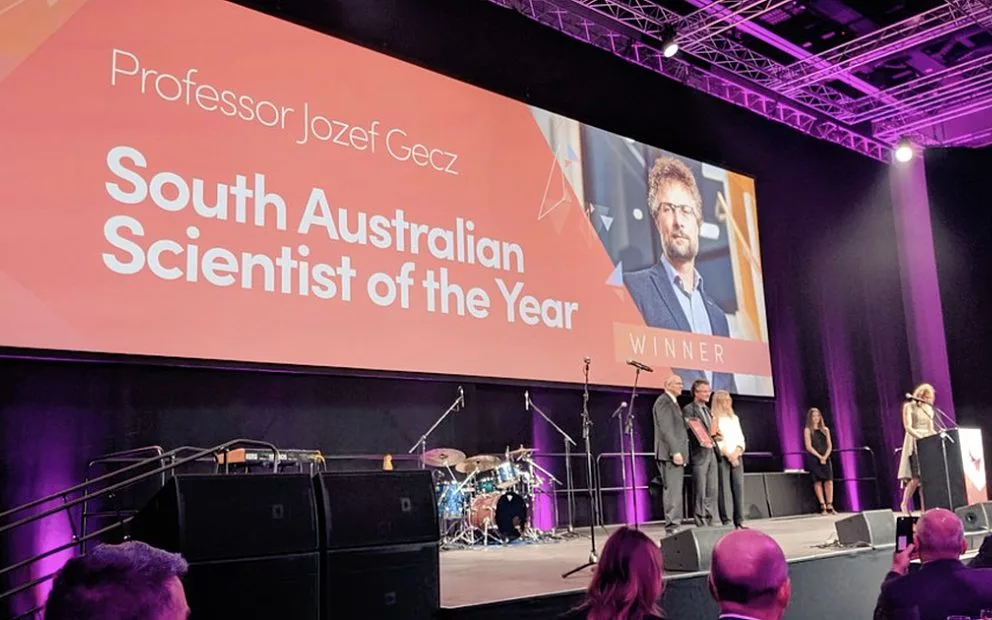SAHMRI scientists and affiliates were celebrated on Friday night, winning three of the nine categories at the SA Science Excellence Awards.
Professor Jozef Gecz, the head of SAHMRI Women and Kids’ Childhood Disability Prevention group, took out the top honour – SA Scientist of the Year. Transcranial magnetic stimulation specialist, Dr Nigel Rogasch was named Tall Poppy of the Year, recognising him as an outstanding young researcher with a commitment to promoting science communication to inspire the next generation of researchers. Professor Helen Marshall’s B Part of It Meningococcal B vaccine team won the Excellence in Research Collaboration award.
Professor Gecz enjoys a global reputation as a leader in the genetics and biology of childhood disabilities specialising in epilepsy, autism and cerebral palsy.
He’s currently directing a Phase III clinical trial to treat “girls clustering epilepsy” by repurposing a drug (ganaxolone) which has already been tested and approved to treat other conditions.
“Interestingly this molecule, a neurosteroid, is involved also in post-traumatic stress disorder, in Alzheimer’s, in post-partum depression, so in women who are depressed after birth,” Professor Gecz says.
“So clearly we are tapping into a fundamental mechanism in the brain which is somehow broken and these genetic findings are really leading the way to understand and also perhaps help treat multiple different groups of disorders, eventually. I guess that would be my dream, to discover another Aspirin or something like that which generally is going to help, across a whole range of medical conditions.”
Girls clustering epilepsy is a debilitating disorder characterised by rapid seizures which can be accompanied by varying degrees of cognitive impairment. It usually presents before five years of age and predominantly affects females although it can occur in males.
Dr Rogasch recently returned to his native Adelaide after a distinguished career in neuroscience with Melbourne’s Monash University. With SAHMRI and the University of Adelaide, he is establishing a magnetic brain stimulation laboratory to investigate differences between people with healthy cognitive function and those with schizophrenia. By looking at how to alter these mechanisms he aims to develop new treatments for a vast range of brain disorders.
Professor Helen Marshall is the Deputy Director of the Robinson Research Institute at the University of Adelaide and is the lead investigator on the B part of It study. It’s the largest study of its kind globally assessing the herd immunity impact of meningococcal B vaccine.


